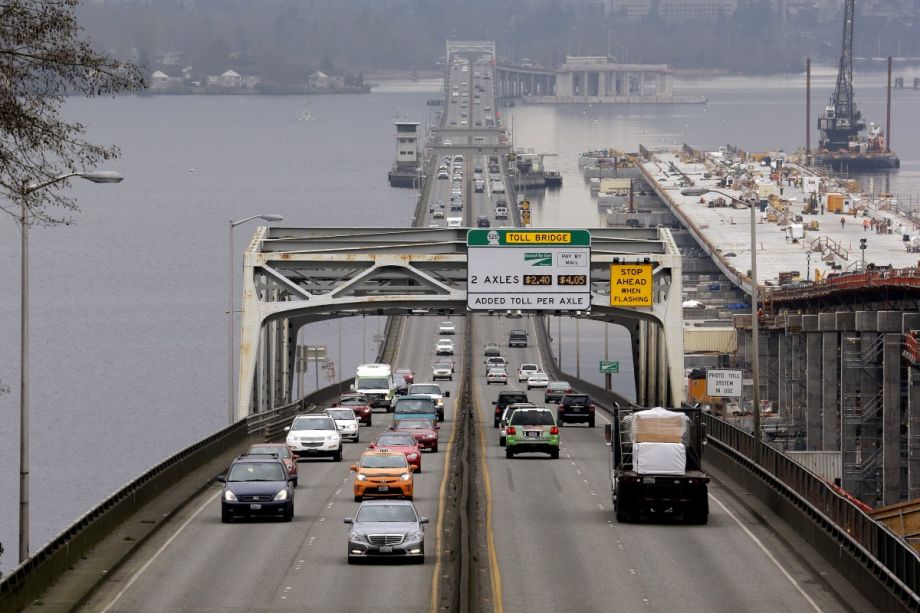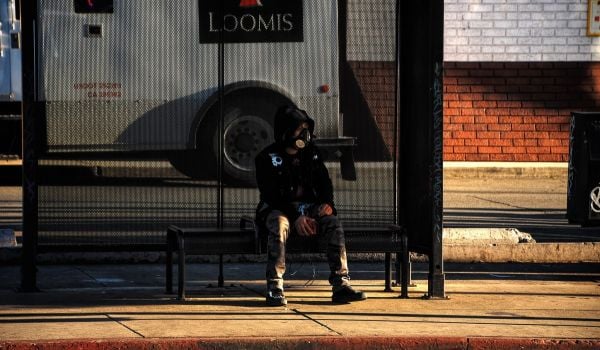Over the weekend, 70 web developers and engineers, designers, data analysts, transportation advocates, traffic engineers, and bureaucrats holed up in the downtown Seattle offices of marketing software company MOZ for an event called Hack the Commute. The city-sponsored civic hackathon’s objective: Take a huge trove of public and private transportation data and use it to create or improve apps and produce data analysis and visualizations that make it easier to travel in Seattle.
In his opening remarks on Friday, Seattle Department of Transportation Director Scott Kubly told the experts gathered, “[governments] create a wealth of data. It’s really helpful to have folks like you who know what to do with that data.”
Attempting to improve Seattle’s terrible transportation problems is a worthy endeavor. The city consistently ranks in the top 10 worst U.S. cities for gridlock. Budget shortfalls at the Metro, the county transit agency, have led to service cutbacks at a time when more Seattleites are riding the bus than ever. Seattle’s Bicycle Master Plan implementation has been chronically underfunded since its adoption in 2007.
Adding to the challenge, the city is bordered by two huge bodies of water and bound by a strict urban growth boundary, so opportunities for more right-of-way are extremely limited. As the fastest-growing major city in the U.S., Seattle’s transportation problems are going to get far worse if big improvements aren’t made.
A weekend of brainstorming and programming is, of course, not going to fix a city’s biggest systemic transportation problems. But, Hack the Commute project manager Candace Faber says the effort can help with smaller problems and start to chip away at the bigger ones.
“While there’s only a small set of problems technology can solve, often it can help illuminate where gaps are in the existing system … . By breaking down problems and looking at data in more depth, we can see which areas are underserved and also get some ideas for ways we might create a better system for everyone,” she explains.
The event kicked off on Friday evening, and participants worked on 14 projects including better bike-share route finding, apps to help you decide what mode to use based on parking availability, accessibility and safety around bus stations, tools for advancing Vision Zero goals and more. Transportation experts from city, regional and state agencies and nonprofits served as mentors to the hackers, which Faber says was intended to help keep the projects realistic and potentially useable.
The teams worked morning and night Saturday and Sunday, pulling from over 150 data sets about city, county and state transit agencies, traffic, bike-share, ferries, emergency medical response, demographics, and more to craft their apps, websites, and data visualizations. After two days of furious coding and testing and tweaking, each team had five minutes to pitch their product to a panel of judges. Judges evaluated projects based on whether the project solved a real transportation problem, would serve either a wide variety of people or an underserved population, prototype quality, and if it could be implemented.
The judges chose three finalists.
Geohackers for Good created the Work Orbit web app meant to help new Seattle residents find a neighborhood to live in and the best mode for commuting. The product is based on the idea that new residents know where they work and little else about a city. Users enter their work address and how long they’re willing to commute (20, 40, 60 minutes). The app then shows them what neighborhoods are in that range; how long it would take to drive, bike or bus from a given location; and an estimate of each mode’s daily cost.
Slügg is a mobile app intended to help solo drivers find would-be passengers to cut down on the number of single occupancy vehicles driving at peak hours. It is named after slugging, informal car pools in San Francisco and elsewhere where drivers pick up passengers on the side of the road near a bridge or toll road so they can take advantage of HOV lanes or reduce toll costs. There are many similar commuting apps already, but Slügg’s creators say they all suffer from a lack of trust, a problem they tried to deal with by connecting their app to users’ company emails.
Hackcessible is a mobile app focused on helping wheelchair users and other people with mobility issues better navigate Seattle. The app overlays a Google map with data about accessible bus stops, sidewalks closed for construction, broken elevators, stairs, sidewalk steepness and more.
The finalists have six weeks to continue developing their products before a final pitch round on April 29th in front of the Mayor and the Hack the Commute judges. Unlike corporate hackathons that often offer up cash and products to winners, Hack the Commute’s champions will receive only bragging rights and publicity that will, in the theory, help them launch their product into the world.
Faber hopes this weekend is a foundation for a sustainable model of drawing on the for-profit world to tackle public sector problems.
“Technology is something the public sector really struggles with,” she explains. “I’m interested in finding a better way to develop government technology and this weekend is proof of concept.”
The Works is made possible with the support of the Surdna Foundation.

Josh Cohen is Crosscut’s city reporter covering Seattle government, politics and the issues that shape life in the city.
Follow Josh .(JavaScript must be enabled to view this email address)


















